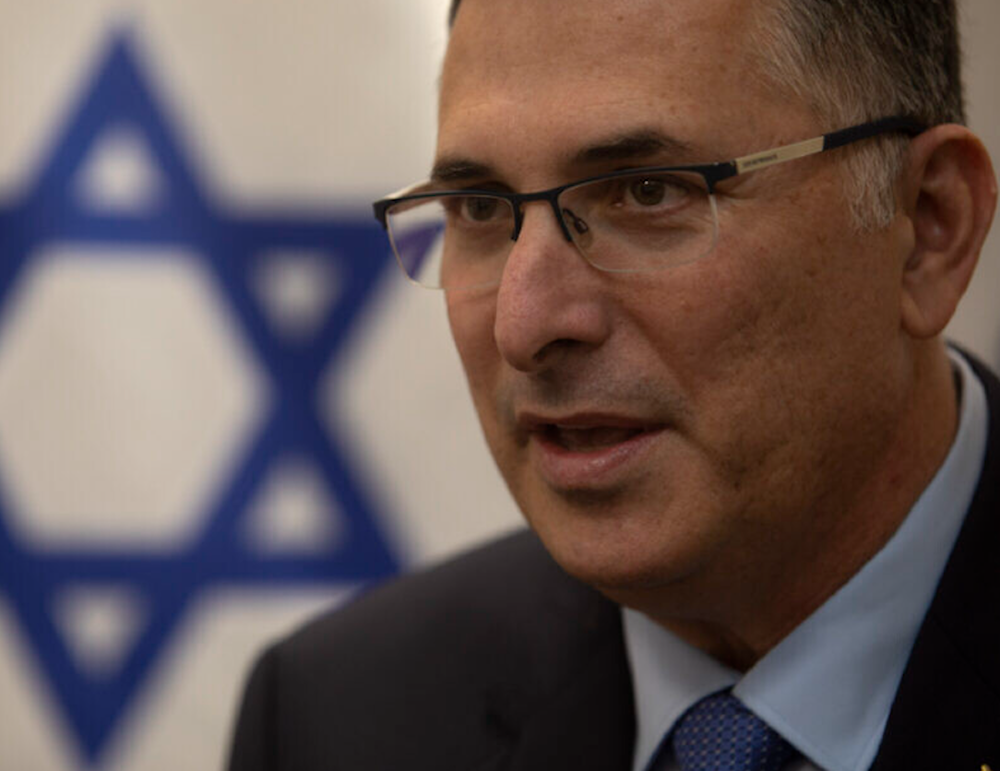Israeli FM denies plans to attack Iran next month: The Telegraph
The Israeli occupation's Foreign Minister Gideon Sa'ar accuses Iran of disregarding its international duties and claims that Tehran cannot be trusted.
-
 Gideon Sa'ar speaks at his New Hope party's headquarters on January 14, 2021 (AP)
Gideon Sa'ar speaks at his New Hope party's headquarters on January 14, 2021 (AP)
Israeli occupation Foreign Minister Gideon Sa'ar denied, in statements to The Telegraph on Saturday, reports of the occupation planning to attack Iran next month.
“I am a member of the security cabinet, and all the intimate forums, and I don’t remember such a decision,” Sa’ar told the publication, explaining that the Israeli occupation is "committed to the objective of preventing "Iran from having nuclear weapons. If that objective can be achieved by a diplomatic path, it is accepted.”
He claimed that Iran's plans cannot be trusted, accusing Iran of disregarding its international duties.
"I’m not excluding the option that they will try to get some partial agreements, to avoid getting to the necessary solution," Sa'ar said.
Threats against Iran's nuclear facilities ‘unacceptable’: IAEA chief
Threats of strikes on Iranian nuclear facilities are "unacceptable", stressed the chief of the UN nuclear watchdog on Thursday.
"The IAEA has always emphasized that threats against Iran's nuclear facilities are unacceptable and that the attacks that are being discussed could not only worsen existing problems, but also create more serious environmental consequences," Rafael Grossi was quoted as saying by the IRIB news agency.
On Wednesday, The New York Times reported that US President Donald Trump blocked an Israeli plan to strike Iranian nuclear facilities, as Washington pursues renewed diplomatic efforts to limit Tehran's nuclear program.
The US and Iran—who have had no formal diplomatic relations for over four decades—are working toward a new nuclear agreement following Trump’s withdrawal from the 2015 landmark deal during his first term in office.
US Special Envoy Steve Witkoff is scheduled to meet Iranian Foreign Minister Abbas Araghchi in Rome on Saturday. The meeting follows high-level nuclear talks between the two countries last week, marking the most senior engagement since the 2015 accord collapsed.
In March, Trump sent a letter to Iran’s Leader Sayyed Ali Khamenei, calling for negotiations but also warning that military action remained an option should talks fail to yield results.
Trump administration officials told The New York Times that "Israel" had sought US backing for a strike on Iranian nuclear infrastructure as early as May.
The proposed plan, including potential operational details, had reportedly been under consideration for several months.
However, during Israeli Prime Minister Benjamin Netanyahu’s visit to the White House last week, Trump informed Israeli officials that the US would not support such an operation. Instead, the president publicly announced the initiation of "direct talks" with Tehran.
Iran and the United States agreed on Saturday to resume discussions on Tehran's nuclear program next week, according to Iranian state television, as they concluded their second round of talks in Rome over their decades-long impasse.

 3 Min Read
3 Min Read










